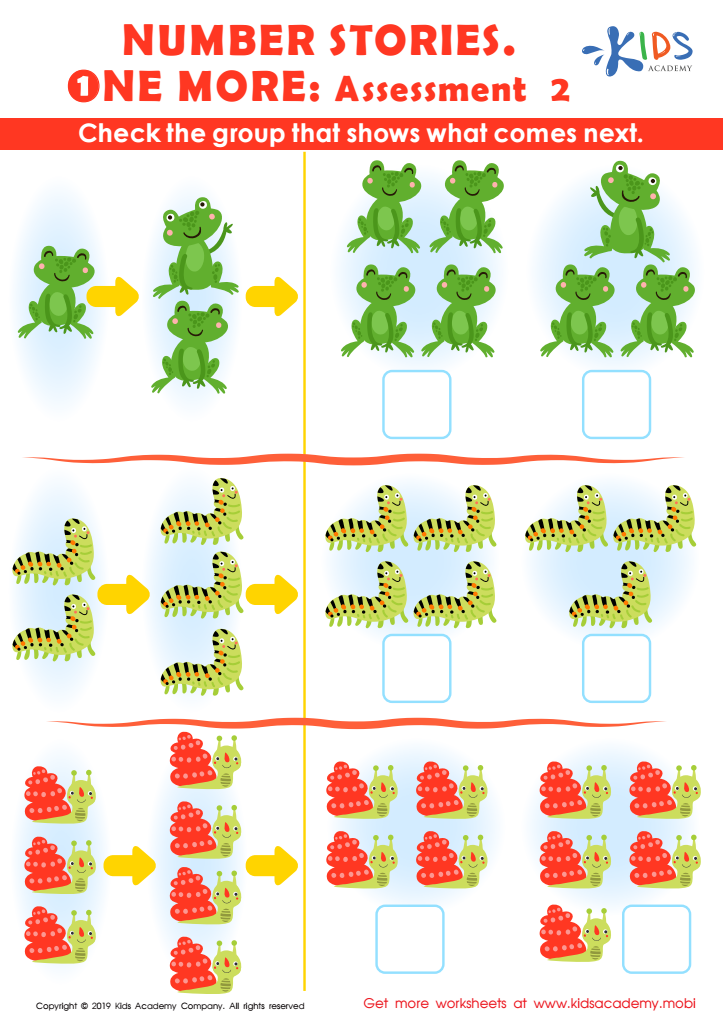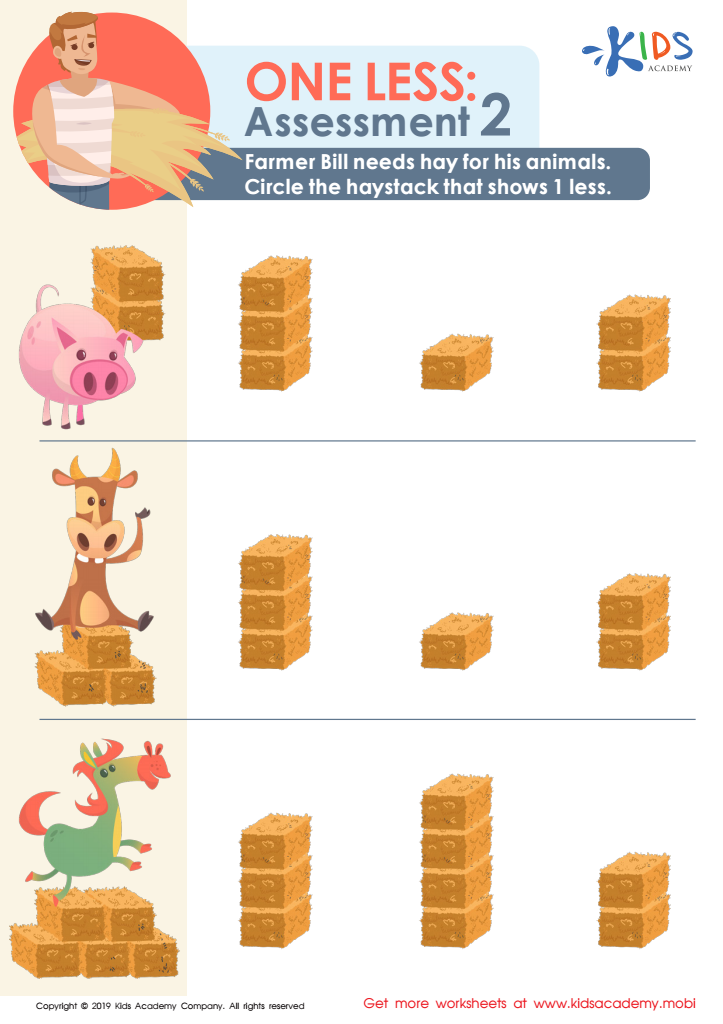Counting worksheets activities for Ages 4-5
2 filtered results
-
From - To


Number Stories One More – Assessment 2 Worksheet


One Less: Assessment 2 Worksheet
Counting worksheets activities stand as a cornerstone in the foundational learning of mathematics for children. These activities not only introduce young learners to the basics of numbers but also enhance their ability to recognize, understand, and manipulate numerical concepts in a tangible and engaging manner. The usefulness of counting worksheets activities extends far beyond mere number recognition, embedding critical thinking and problem-solving skills in the minds of students from an early age.
Firstly, counting worksheets activities are instrumental in developing a child's number sense. This includes understanding the order of numbers, recognizing the quantity each number represents, and being able to compare these quantities. Through repetitive practice, children become fluent in counting forwards and backwards, which is essential for more complex mathematical operations such as addition, subtraction, multiplication, and division.
Moreover, these activities are designed to be interactive and can be tailored to suit the learning pace of each child, making them an incredibly flexible tool in both classroom and at-home learning environments. Counting worksheets can incorporate colorful images, fun themes, and varied approaches to counting, such as by ones, twos, fives, or tens, thus maintaining the child's interest and engagement over time.
Engaging in counting worksheets activities also promotes the development of fine motor skills as children write numbers, draw tally marks, or color specific quantities of objects. This dual benefit of learning mathematical concepts while enhancing physical coordination is a testament to the multifaceted value of these worksheets.
Furthermore, counting worksheets provide immediate feedback to learners, allowing them to recognize errors and understand corrections. This process fosters a growth mindset, encouraging children to view mistakes as opportunities for learning rather than failures.
In conclusion, counting worksheets activities are not just about learning to count; they are a comprehensive educational tool that lays the groundwork for mathematical proficiency, cognitive development, and lifelong learning skills. Their role in early education cannot be overstated, making them a staple in the toolkit of educators and parents alike.

 Assign to the classroom
Assign to the classroom












